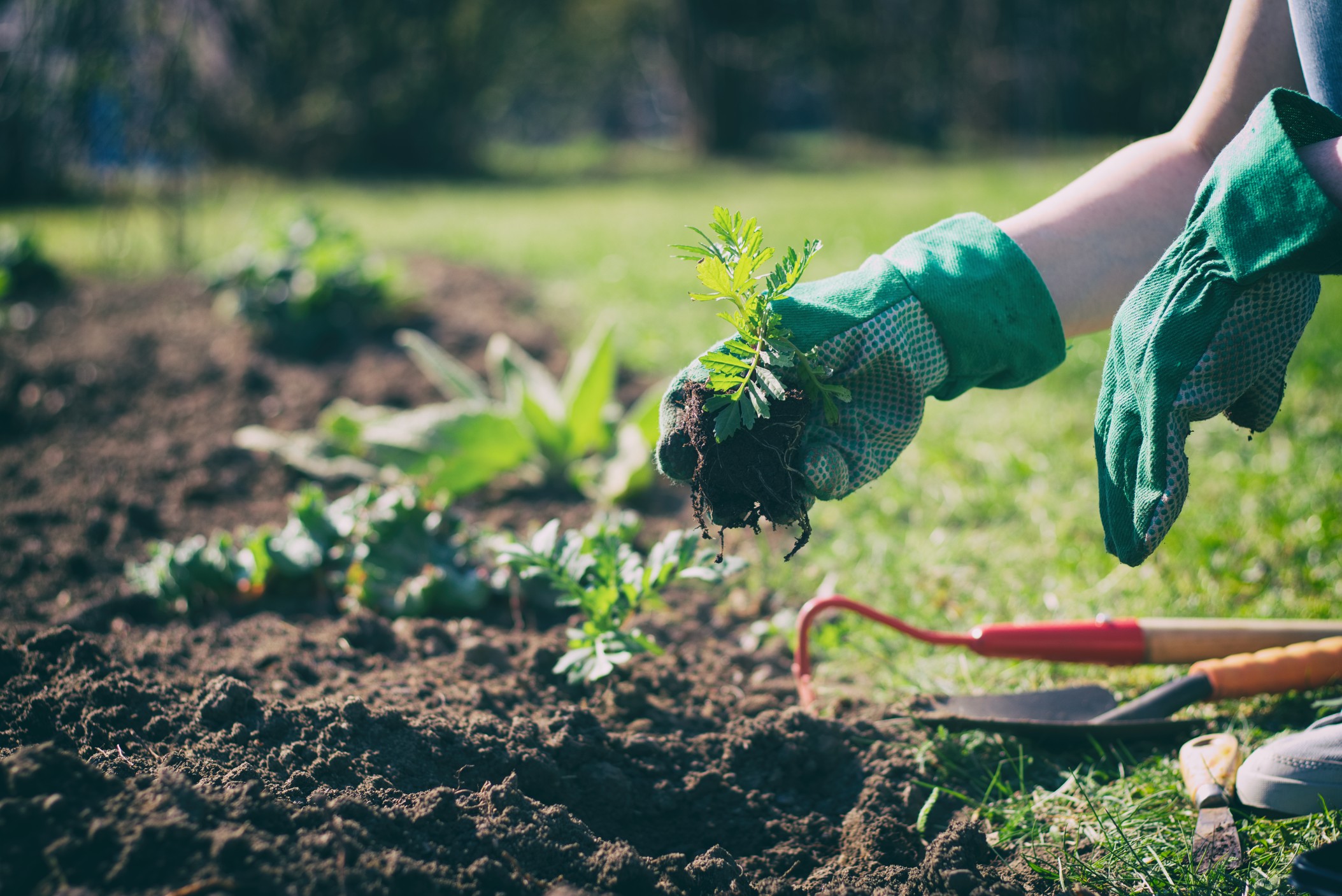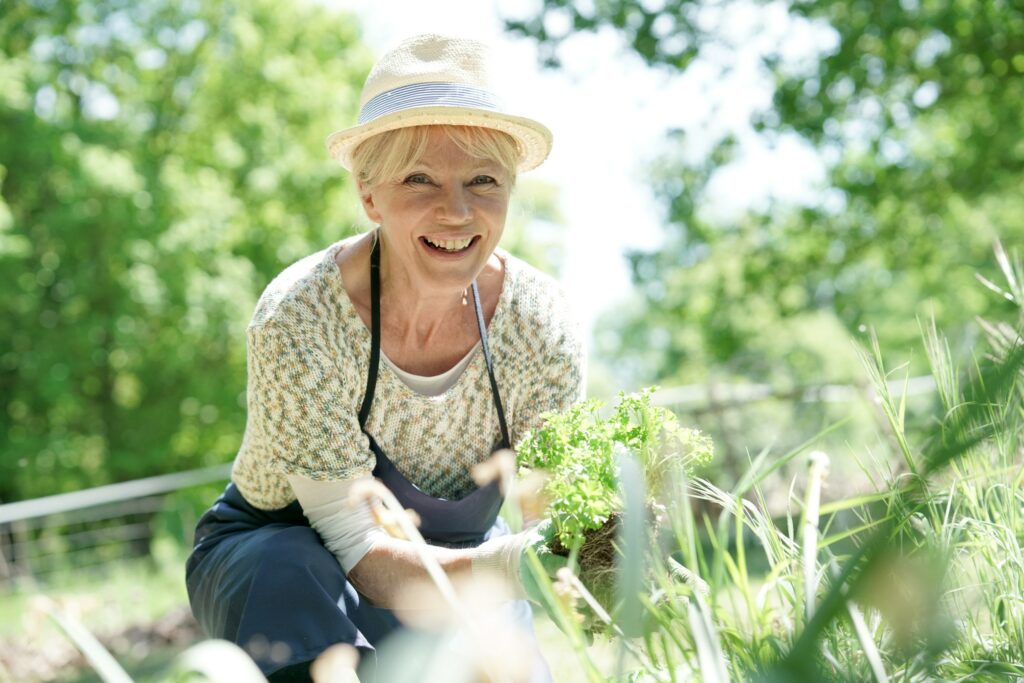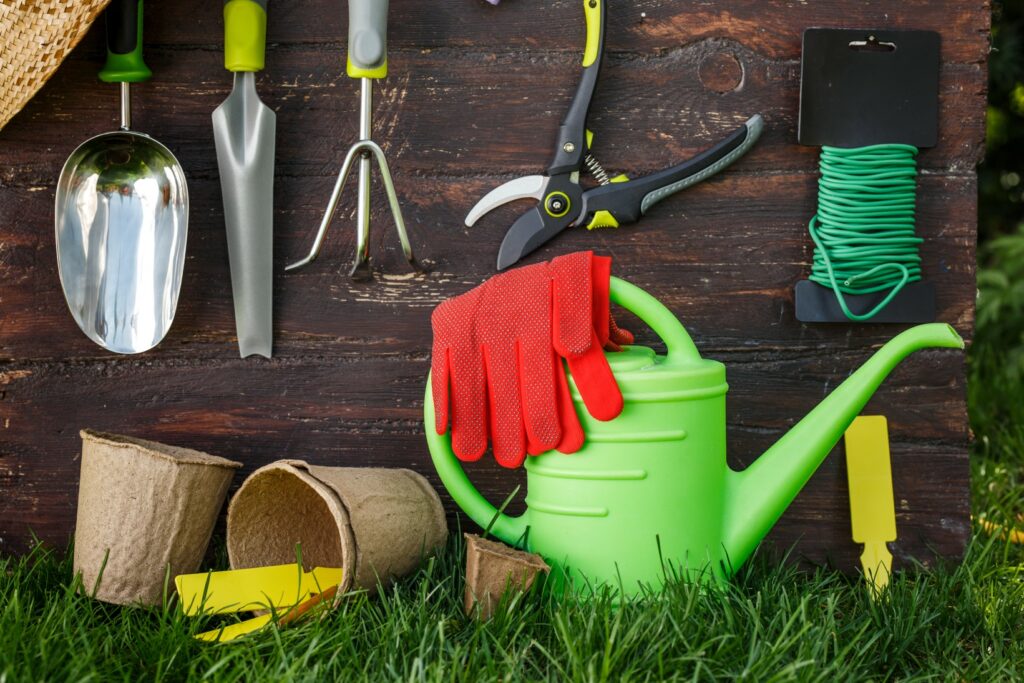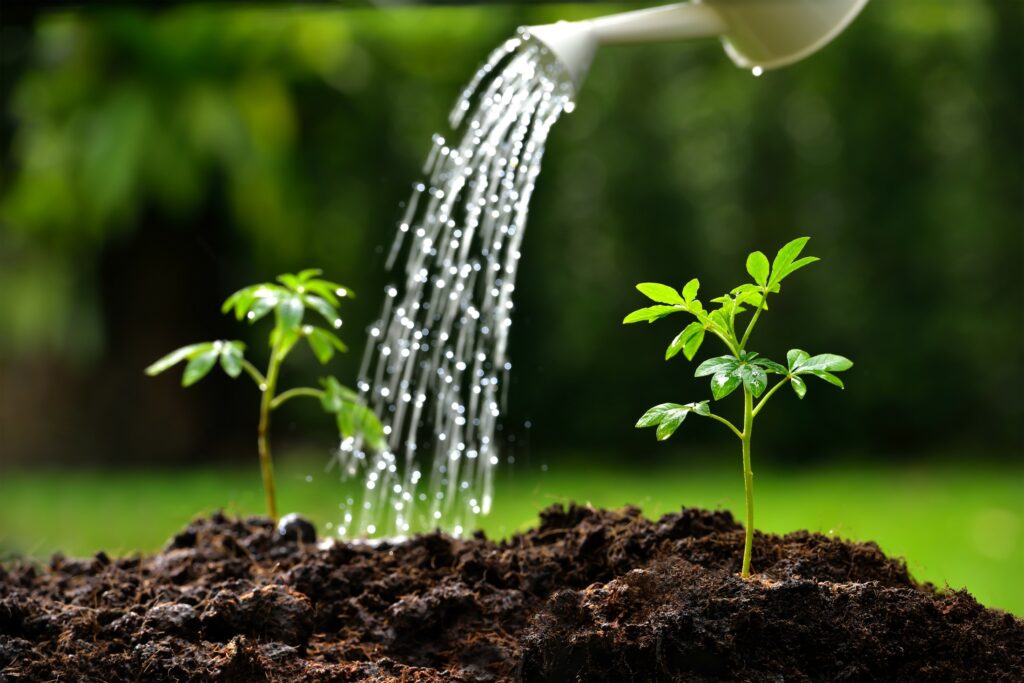How a Rainy Night and Beyoncé Kept DC Metro Running
August 9, 2023
In the captivating world of music and entertainment, artists wield a unique power that extends beyond the boundaries of the stage, leaving an indelible mark on the hearts and minds…

Spring is the absolute best time to start a garden. As the weather warms up, plants begin to emerge from their winter dormancy and start growing again. During these warming spring months, the soil temperatures start to rise, creating an ideal environment for seed germination and plant growth.
It allows you to take advantage of the entire growing season and gives the fruits and vegetables in your garden ample time to mature and produce.
When it comes to gardening, it is more than just a hobby — it’s a rewarding way to connect with nature, improve your health, and even save money. When you grow your own food, you have the power to control what you eat and how it’s grown, making it a great option for those who are health-conscious or looking for a sustainable way to feed themselves and their families.
Best of all, getting your hands dirty in the garden can be a great way to reduce stress, improve your mood, and get some fresh air and exercise. In this blog post, we’ll explore the many benefits of gardening and provide tips for getting started, even if you’re a beginner. So grab your gardening gloves and trowel — it’s time to dig in!
Now that spring is here, it’s time to get outside, and perhaps one of the best reasons to start your garden is to be outside and enjoy the fresh air. Gardening is an activity that can provide a number of great physical and mental health benefits.
Not only can you soak up some vitamin D and get some exercise, but the physical activity involved in gardening — such as digging, planting, weeding, and harvesting — can burn calories and help maintain or improve strength and flexibility.
Gardening is also a great way to reduce stress levels. Studies have shown that spending time in nature can lower cortisol levels, which is that pesky hormone associated with stress.
When you spend time in your garden, you can feel a sense of relaxation and calmness, which can help alleviate symptoms of anxiety and depression. Being in nature and getting fresh air can also help to reduce feelings of tension, anxiety, and depression — improving your mood and overall well-being.
Gardening also helps to provide a sense of purpose and accomplishment. Growing your own food can be very satisfying, and it can also provide a sense of pride in being self-sufficient. And if you know other gardeners or join a gardening group, then gardening can help build a sense of community and connection.

Did you know that growing your own food can help reduce your carbon footprint by reducing the amount of transportation emissions associated with buying produce from grocery stores, which often require long-distance transportation from farms to stores?
By growing your own food, you can also reduce the use of harmful pesticides, herbicides, and other chemicals that can harm the environment. And by growing your own food, you can control what goes into your soil, and thus your food, reducing the amount of harmful chemicals that make their way into the environment.
When you learn how to grow your own food, you can also significantly reduce food waste. By only harvesting what you need and when you need it, you can avoid throwing away unused produce. And any kitchen scraps and yard waste can be used to create compost, which can then be used as a natural fertilizer for your amazing garden.
Not only does organic produce taste delicious, but it is also grown without synthetic pesticides or fertilizers. This makes organic produce a safer and healthier option for you and your family. Gardening can be a sustainable and environmentally friendly way to grow your own food and support the health of our planet.
The great thing about gardening is that it’s not only a healthy, environmentally-friendly activity, but it also saves you money at the grocery store. Growing your own fruits, vegetables, and herbs not only provides you with fresh produce but also saves you money on groceries.
Home-grown food is often cheaper than store-bought organic produce as well. You can also save money by composting kitchen scraps and yard waste to use as natural fertilizers for your garden — no need to buy expensive chemical fertilizers.
And if you have extra produce, you can sell it at local farmers’ markets or even start a small business. Selling your own home-grown produce is a great way to make money and share the deliciousness of your garden with others.
When it comes to landscaping, a well-maintained garden will help you cut costs there as well. Not only can a beautiful garden increase the value of your home, but it also helps to reduce energy costs associated with cooling and heating by providing shade and protection from wind.
Gardening can be a rewarding and enjoyable hobby, but it can also be overwhelming for beginners. Here are some tips to get you started with your garden.
Before planting anything, it’s important to prepare your soil. This means removing any weeds, rocks, or other debris and tilling the soil to make it loose and easy to work with. You can also add compost or other organic matter to enrich the soil and provide nutrients for your plants.
Different plants have different requirements for sunlight, water, and nutrients. Before planting, research the plants you want to grow and make sure you understand their specific care requirements. You’ll need to water your plants regularly and fertilize them as needed.
You’ll need some basic tools and equipment to get started with gardening, including a hoe or shovel for digging, a rake for leveling the soil, a watering can or hose, and gloves to protect your hands. You may also want to invest in a wheelbarrow or garden cart for transporting soil and plants.

You can find gardening tools and equipment at most home improvement stores, nurseries, online retailers, or even some grocery stores. It’s important to choose quality tools that will last for years, so it may be worth investing in higher-end brands. You can also look for used tools or equipment at garage sales, thrift stores, or online marketplaces.
It’s easy to get carried away when starting a garden, but it’s important to start small and grow from there. You can begin with a small garden bed or even a few containers on your balcony or patio. This will help you learn the basics of gardening without feeling overwhelmed.
Don’t be afraid to seek advice from experienced gardeners or local nurseries. They can provide valuable tips and advice on plant care, soil preparation, and other gardening techniques. You may have a gardening guru in your neighborhood that would absolutely love to offer some gardening tips.
Ensuring that your garden is as great a success as it can be requires more than just planting a few seeds and hoping for the best. Here are some tips to help ensure that your garden thrives.
1. Start Small: If you’re new to gardening, it’s best to start small with a few easy-to-grow plants. This will help you learn the basics of gardening without feeling overwhelmed. Some good options for beginners include herbs, lettuce, tomatoes, and radishes.
2. Choose the Right Location: The location of your garden is critical to its success. Choose a spot that receives at least six hours of sunlight per day and is well-draining. Avoid areas with standing water or heavy foot traffic.
3. Prepare the Soil: As mentioned above, healthy soil is the foundation of a successful garden. Before planting, test your soil pH and add compost or other organic matter to enrich the soil and provide nutrients for your plants.
4. Water Properly: Most plants require about an inch of water per week, either from rain or irrigation. Water deeply and infrequently, rather than shallowly and frequently, to encourage deeper root growth.

5. Mulch: Mulching around your plants can help to retain moisture in the soil, suppress weeds, and regulate soil temperature. Use a layer of organic mulch, such as shredded leaves or straw, around your plants.
6. Weed Regularly: Weeds can compete with your plants for nutrients and water, so it’s important to weed your garden regularly. Pull weeds by hand or use a hoe to remove them before they have a chance to take hold.
7. Monitor for Pests and Diseases: Keep an eye out for pests and diseases that can damage your plants. Look for signs of damage, such as holes in leaves or wilting plants, and take action as soon as possible to prevent further damage.
8. Harvest Regularly: Regular harvesting can encourage your plants to produce more fruits or vegetables. Be sure to harvest your produce when it’s ripe to avoid over-ripening or spoilage.
By following these tips, you can ensure a successful growing season and enjoy the many rewards of gardening. Remember that gardening takes time and effort, but the results are well worth it!
Gardening offers countless benefits, including physical exercise, stress relief, improved mental health, and of course, fresh fruits and vegetables. So why not give it a try?
Whether you have a small balcony or even just a windowsill, you can grow something beautiful and delicious. With the right tools, tips, and tricks up your sleeve, gardening can be an enjoyable and rewarding experience. So get out there, start digging, and discover the many benefits of gardening today!